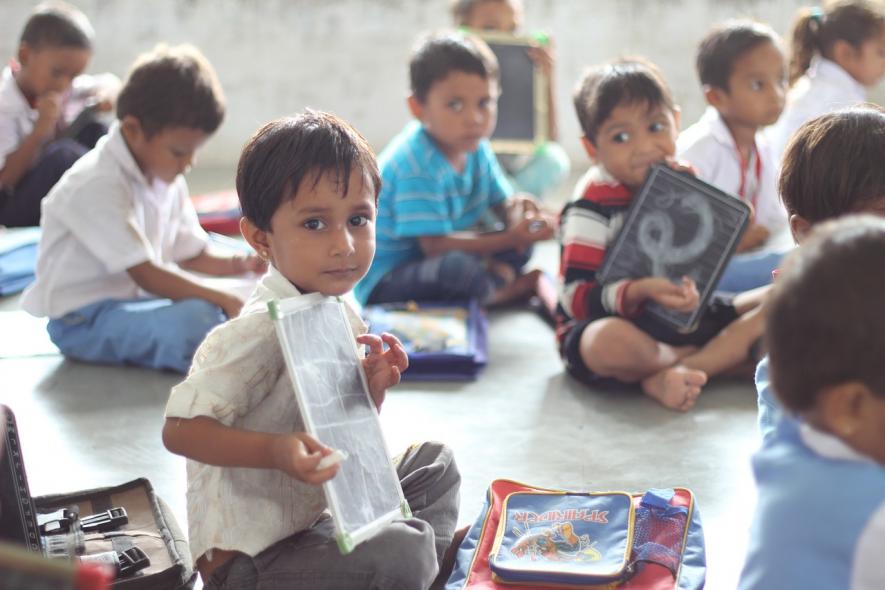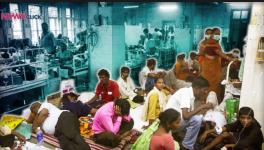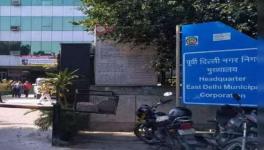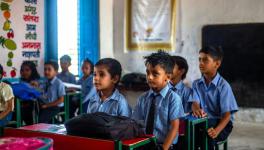Lockdown’s Impact on Working-class Children may be Getting Worse

Image Courtesy: Needpix.com
The recent release of the ASER 2022 survey on the state of education in the country has attracted quite a bit of attention, as it should. The survey found very significant drops in the ability of children to read and perform basic mathematical tasks. But the ASER report also expressed some hope that some recovery may be underway and that this could result in a return to pre-pandemic levels of learning relatively soon.
However, is this the case? Is recovery happening for all children across the board? The findings from a study on access to education among working-class children, carried out in 2022 by the Delhi-based Institute of Social Sciences (in partnership with Rosa Luxemburg Stiftung), raise the possibility that working-class children in some areas may be facing increasing rather than decreasing hurdles in keeping up with their classes. The full study report can be accessed here (click here for a Hindi version).
The study team (including the present author) conducted two rounds of a survey over a group of 399 working-class children spread across four sites - Tehri Garhwal district in Uttarakhand; Dehradun, also in Uttarakhand; Delhi; and the Nilgiris in Tamil Nadu.
The children belonged to families of construction workers, domestic workers, agricultural workers and other marginalised and working-class communities. The two rounds of the survey were carried out in August and November 2022. The three-month gap between rounds allowed the researchers to assess how the children were progressing and specifically to check whether and what kind of recovery was underway.
The study had some encouraging findings, which are also consistent with the findings of ASER 2022. Specifically, all children reported their schools had the basic infrastructure and teaching staff, and in Tehri Garhwal (Uttarakhand), teacher attendance, as well as provision of scholarships, uniforms, and mid-day meals, all appeared to be at high levels.
But when it came to the question of recovery, the study’s findings were quite striking. In the three regions other than Delhi, when asked whether they felt they could understand what was being taught in their classes and whether they were satisfied with their marks and what they were learning, children reported markedly lower levels of satisfaction in November as compared to August. For example, when asked if they were able to understand what is being taught in their science classes, the proportion saying they were fully able to understand fell from 73% to 7% in Tamil Nadu, from 26% to 3% in Tehri Garhwal and from 54% to 38% in Dehradun. These findings carry the disturbing implication that the impact of two years of school closures may be getting worse over time due to a lack of support. In Delhi, however, the picture was more encouraging - we return to that point below.
A second point that emerged was that at least half of our respondents relied on private tuition in Dehradun and Delhi (the figures were lower for the other two sites). This has also been noted by the ASER authors, but our findings in regard to this reliance on tuition teachers were less positive. In the first place, most of these tuition teachers were unqualified and untrained, with most of our tuition-going respondents saying that their tuition teachers were local youth who had either done well in school or obtained a college degree. Such tuitions were also expensive, and indeed, in the three months between the rounds of our survey, 65% of our respondents in Delhi reported changing their tuition teacher, with the most common reason being that the earlier teacher was too expensive.
In general, our respondents also indicated that educational expenses remain a problem, even for those attending government schools. Between 50% (Tamil Nadu) and 85% (Delhi) of our respondents said their families were having difficulty bearing the expenses associated with education. School-related benefits like free uniforms and scholarships are supposed to help, but many survey participants were having trouble accessing them. In Dehradun, none of the eligible children - including those of construction workers, for whom there is a separate scheme - reported receiving the scholarships they are entitled to, and in Delhi, 70% reported the same. Similar issues arose around mid-day meals in all areas except Tehri Garhwal.
What can be done to assist working-class children? When it comes to learning and comprehension, our respondents in Delhi responded differently than those in other areas. While overall levels of comprehension and satisfaction remained low, there was a marked improvement over the three months between the two rounds of our survey. For instance, the share of respondents who reported they are able to “understand all the time” in English classes rose from 26% to 46.5% and in science from 30.6% to 50.5%. Upon discussion in an attempt to understand the reasons for this improvement, two interventions by the Delhi government emerged as possible reasons: mandatory meetings between parents and teachers and feedback forms/written assignments every week. These may result in children receiving more frequent feedback and accessing better support from their parents.
As a result, the study recommends that such measures should be adopted in all states. We also noted that, based on feedback from our respondents and other patterns visible in the data, extra time with teachers and relaxation in the syllabus could help support working-class children better. The current patchy system of scholarships, uniform provision, textbook provision and so on should be universalised to apply to all children studying in government schools and in private schools below a fixed fee level, and their provision should be made time bound and subject to Right to Service provisions (where such laws exist).
In the absence of such measures, the findings of this study indicate that the situation of working-class children, rather than recovering, may deteriorate further. The lockdown and the pandemic have already vastly exacerbated economic and social inequality in the country, and our study raises the disturbing possibility that - in the absence of urgent and systematic measures - the next generation may suffer the impacts of these measures for decades to come.
Shankar Gopalakrishnan is a Dehradun-based researcher with the Institute of Social Sciences, New Delhi. The study referred to in the article was carried out in collaboration with the Rosa Luxemburg Stiftung.
Get the latest reports & analysis with people's perspective on Protests, movements & deep analytical videos, discussions of the current affairs in your Telegram app. Subscribe to NewsClick's Telegram channel & get Real-Time updates on stories, as they get published on our website.
























